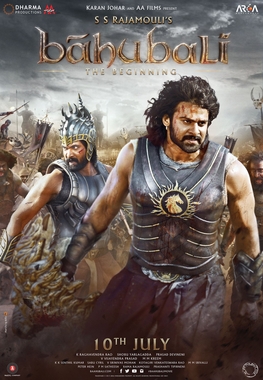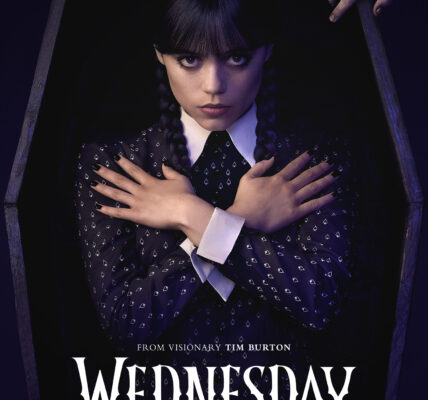Movie Review: Baahubali: The Beginning (2015)
Director: S.S. Rajamouli
Starring: Prabhas, Rana Daggubati, Anushka Shetty, Tamannaah Bhatia, Sathyaraj, Ramya Krishnan
“Baahubali: The Beginning” is not just a film — it is a cinematic phenomenon that redefined the Indian film industry’s approach to epic storytelling. Directed by visionary filmmaker S.S. Rajamouli, this 2015 magnum opus laid the foundation for one of the most ambitious two-part sagas ever produced in Indian cinema.
The film opens with a gripping and mysterious scene where a woman sacrifices her life to save a baby from drowning in a river. This child, Shivudu (played by Prabhas), is raised by a tribal couple near the base of a gigantic waterfall. As he grows, Shivudu becomes a symbol of strength and curiosity, obsessed with climbing the waterfall to discover what lies beyond. His journey across the cliff sets the stage for a narrative full of mythical grandeur, intense emotion, and political intrigue.
The plot gradually unfolds into a complex tapestry of royal betrayal, lost legacy, and the timeless struggle between good and evil. Shivudu eventually learns his true identity as Mahendra Baahubali, the son of the legendary warrior Amarendra Baahubali, and the rightful heir to the kingdom of Mahishmati. The revelation sets off a chain of events that connects his destiny with the oppressed people of the kingdom and his confrontation with the tyrannical king Bhallaladeva (Rana Daggubati).
What truly sets Baahubali: The Beginning apart is its breathtaking visual spectacle. The scale of the sets, the detail in costume design, and the grandeur of the battle sequences rival those of Hollywood blockbusters like Gladiator and The Lord of the Rings
The performances are equally powerful. Prabhas as both Shivudu and Amarendra Baahubali delivers a commanding presence, combining physicality with noble charm. Rana Daggubati is menacing and regal as the antagonist, while Ramya Krishnan as Sivagami gives a standout performance, portraying a fierce and dignified queen torn between duty and affection. Tamannaah and Anushka Shetty both bring strength to their respective characters, avoiding the usual clichés associated with female roles in historical epics.
M.M. Keeravani’s musical score perfectly complements the film’s tone, ranging from the tender to the triumphant. His background score enhances the emotional depth and heightens the impact of every scene.
Despite its near-flawless execution, the film is not without minor flaws. Some sequences may feel slightly over-the-top or melodramatic to international audiences unfamiliar with Indian cinematic traditions. Also, a few visual effects, though ambitious, could have been more polished. However, these are minor quibbles in an otherwise awe-inspiring experience.
In conclusion, Baahubali: The Beginning is a landmark in Indian cinema — a bold, visionary film that blends mythology, drama, romance, and action into a compelling narrative. It ends with a jaw-dropping cliffhanger, leaving viewers desperate to uncover the answer to the now-iconic question: “Why did Kattappa kill Baahubali?” This film is not only a visual feast but a storytelling triumph that set a new benchmark for Indian epics.
Rating: 9/10




